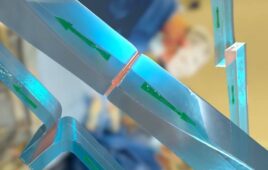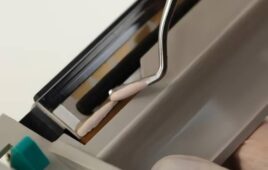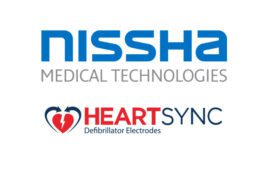
Developments in adhesives are helping manufacturers produce devices that are more resistant to the harsher cleaners and disinfectants used in hospitals.
Jason Spencer/Global Market Development Manager/Henkel
New developments in adhesives are helping medical device manufacturers produce devices that are more chemically resistant to the harsher cleaners and disinfectants used in hospitals. These pre-qualified, fast-cure adhesives demonstrate superior performance under challenging conditions, enabling customers to reduce the time and resources needed to evaluate assembly methods. This leads to shorter development times while improving operational efficiencies.
Due to the aggressive materials in new cleaners and solvents, plastics suppliers are developing new polymer blends, such as co-polyesters and acrylics, to withstand the harsher environments that medical devices are exposed to. Suppliers such as Henkel–the manufacturer of Loctite adhesives–work closely with suppliers to test adhesives with these new plastics to provide a complete disinfectant-resistant solution.
By evaluating and testing various adhesive and substrate combinations in its labs, Henkel helps suppliers reduce their overall R&D time and shorten the development process. Henkel also holds medical seminars and hands-on training sessions to help suppliers improve medical device designs through optimization of joint designs and adhesive selection.
Light-curing acrylic adhesives
For many plastic substrates, light-curing acrylic adhesives are a viable solution. These one-component adhesives cure in seconds when exposed to ultraviolet or visible light. Light-cure acrylics are easily automated and fluorescent versions allow in-line detection of the adhesive. Light-cure acrylic adhesives are resistant to harsh disinfectants and are ISO 10993 Biological tested for medical device use.
These acrylics are suitable for assembling syringes, injectors, infusion sets, pressure transducers, drug delivery devices, IV sets, oxygenators, cardiotomy reservoirs, blood heat exchangers, hearing aids, anesthesia masks and blood filters.
Cyanoacrylate adhesives
Cyanoacrylates, or instant adhesives, are another good choice for bonding plastic substrates. These are one-part, room-temperature-curing adhesives that provide excellent adhesion to most substrates and typically fixture within seconds. Cyanoacrylates can be easily automated on production lines and are available in a variety of formulations including toughened, low-odor/low-bloom, surface-insensitive and thermally resistant.
Some suppliers also offer highly flexible cyanoacrylates for the assembly of flexible medical devices.
Cyanoacrylates are widely used to bond components in blood pressure transducers, endoscopes, IV sets, infusion pumps, catheters, orthopedic devices, hearing aids, cast boots and diagnostic imaging equipment. Loctite cyanoacrylates are ISO 10993 biocompatible.
Producing safer, more comfortable devices
Collaboration between adhesive suppliers and plastic suppliers helps develop innovative solutions that benefit customers, enabling them to reduce costs, shorten their development time, and produce safer, more comfortable devices for patients.




